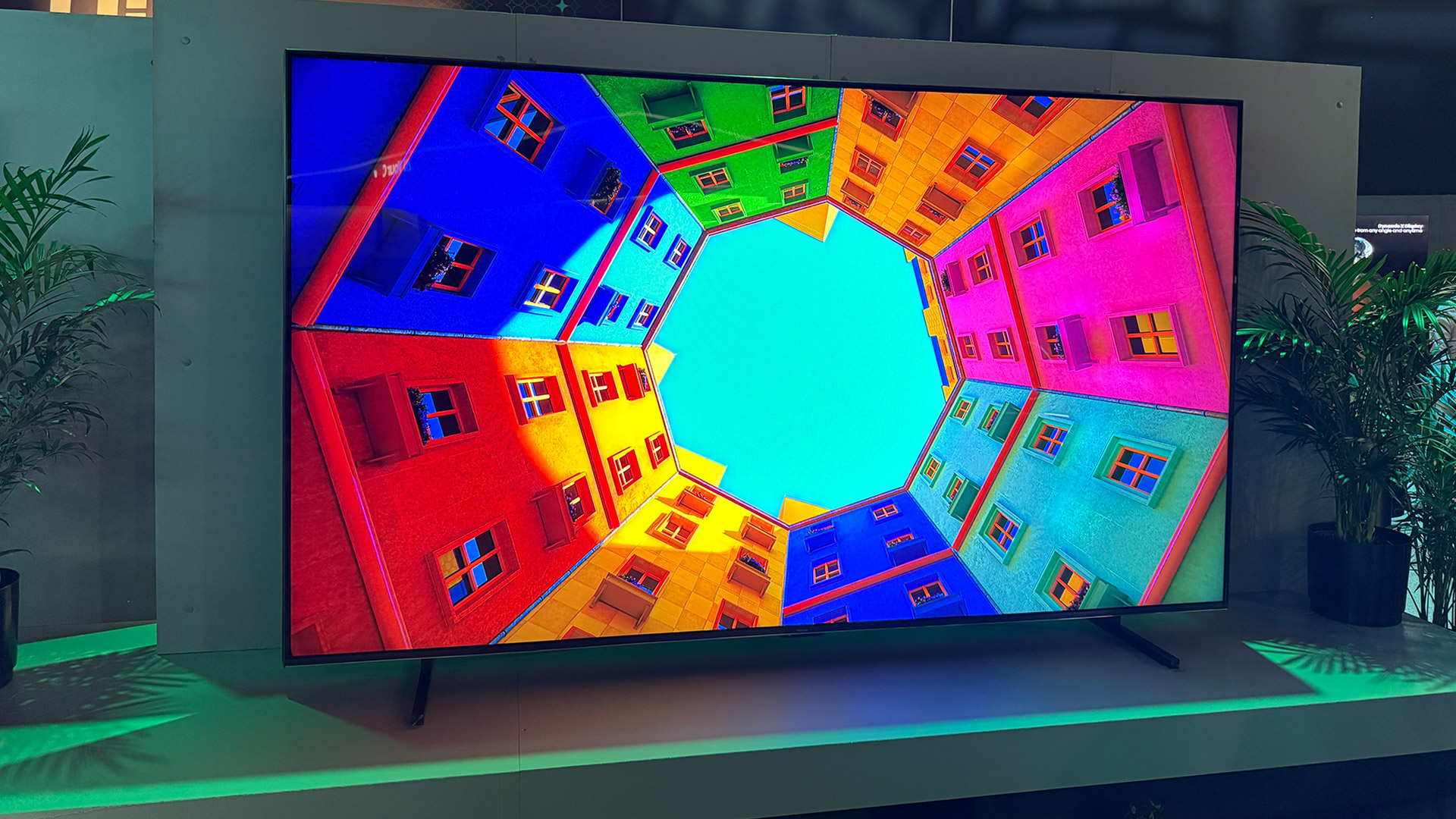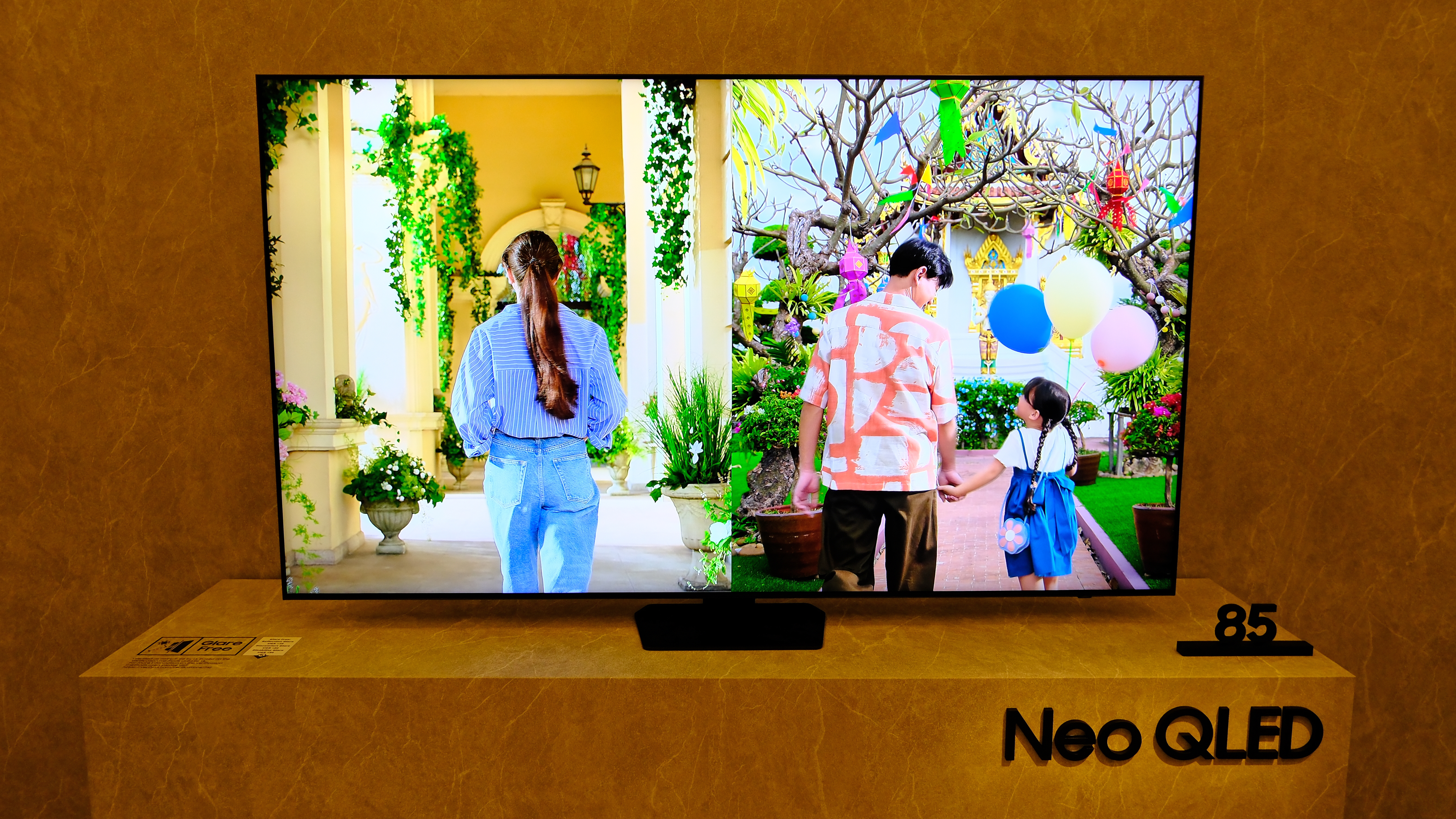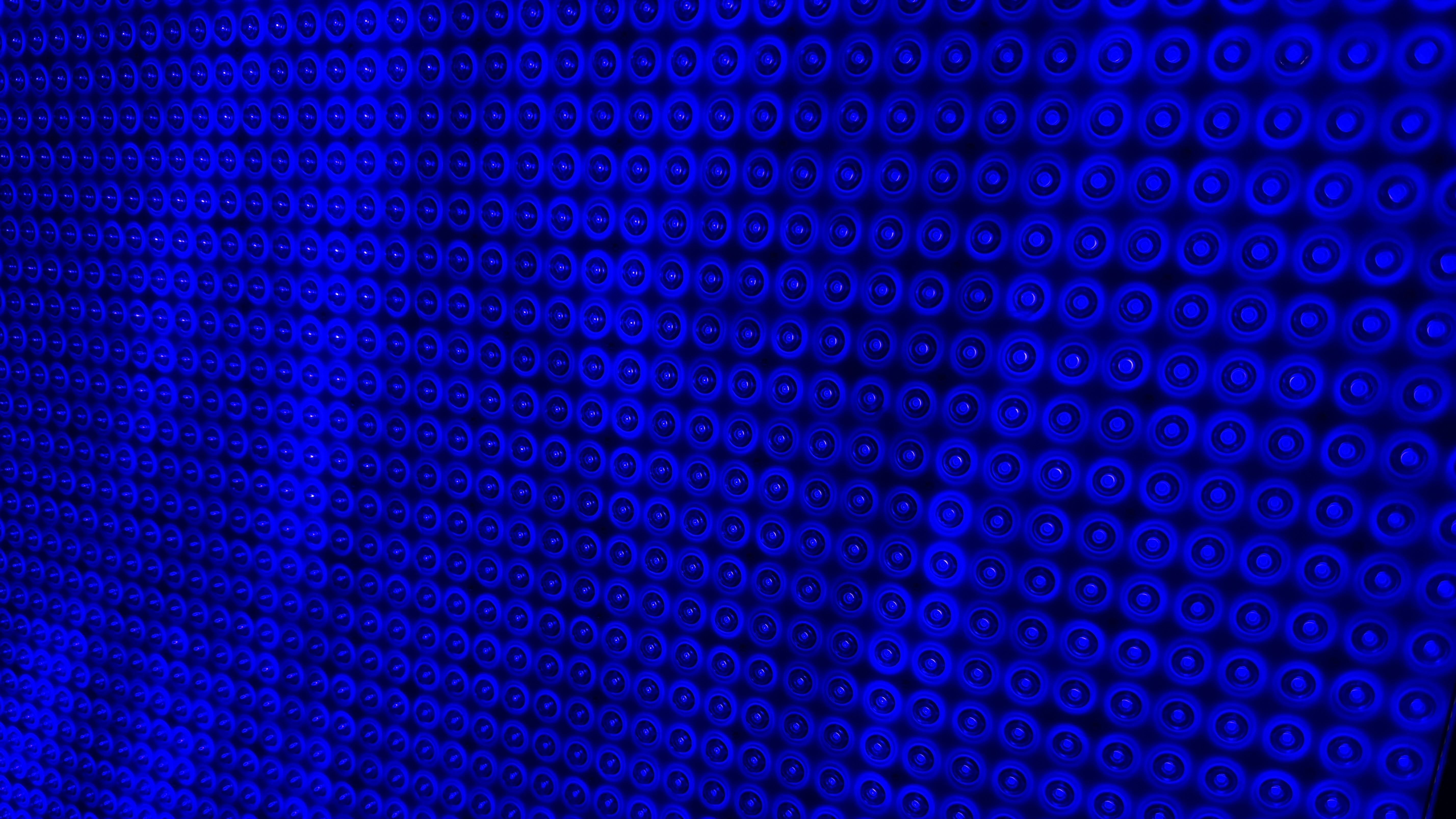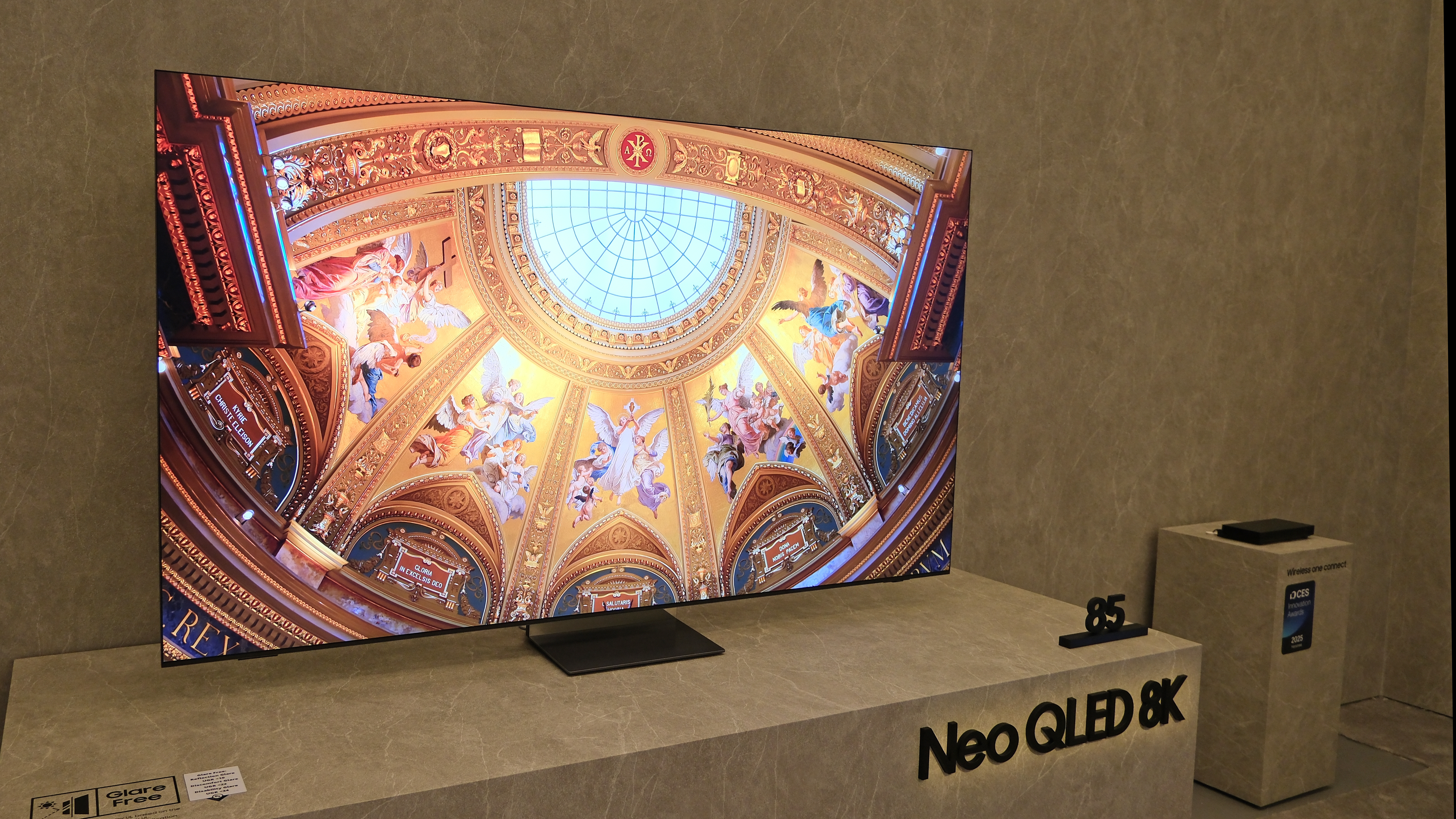
As CES 2025 draws to a close, there are a few key takeaways in the world of TVs including brighter OLEDs, like the LG G5, bigger screens, like Hisense's mammoth 136-inch and 163-inch micro-LED TVs, as well as the introduction of new technologies like Samsung's 8K TV with an RGB micro-LED backlight.
One market, however, looks like it'll be just as competitive if not more so than it did in 2025; and that's mini-LED TVs. Some of the best TVs on the market are mini-LED TVs. Highlights from 2024 included the Samsung QN90D, Hisense U8N and the ground-breaking Sony Bravia 9, but there were so many more models that could count themselves among the best mini-LED TVs.
2025 looks set to be another big year for mini-LED TVs, with some exciting tech innovations introduced at CES. Mini-LED TVs from Samsung, Hisense, TCL and Panasonic have been confirmed – and Sony hasn't even announced its sets yet!
The state of mini-LED in 2025

Samsung revealed its 2025 mini-LED TV lineup and the most eye-catching news was the introduction of Glare Free tech to the Samsung QN90F and QN990F, its 2025 flagship 4K and 8K models. The reflection beating tech (which is a matte screen) was first introduced in 2024 on the Samsung S95D, one of the best OLED TVs on the planet.
We were blown away by the effectiveness of the Glare Free tech on the S95D, so adding it to the QN90F – which we expect to have high brightness levels and great motion processing like its predecessor the QN90D – is likely to make it one of the best TVs for sport. This is one for sports fans to keep an eye on.
One of the other major reveals at CES was the introduction of Hisense's RGB mini-LED backlit TV, the 116-inch UX. Hisense says the new tech will provide bolder, more vibrant colors and 10,000 nits of peak brightness, while also being 10% more energy efficient. We saw the 116UX in person and its as vibrant as promised.
This is likely to be a super-premium TV, with the 110-inch UXN with a standard mini-LED backlight retailing for a hefty $15,000 / £20,000 (roughly AU$24,000) so you can expect the 116UX to be even pricier, but its still an exciting new tech.

TCL also revealed a new type of mini-LED backlight, which demonstrated more precise backlight control and higher brightness of up to a mind-blowing 50% increase in its 2025 mini-LED TV lineup, without compromising the image's darker areas.
Panasonic introduced the W95B in its 2025 TV lineup, while LG announced two mini-LED sets, the QNED99 and QNED92, into its 2025 QNED TV lineup. While these didn't quite have the same headline-grabbing innovations as the sets above, they are still set to be packing with excellent gaming features and upgraded processors promising higher brightness once again and better contrast.
These are just some of the mini-LED TV models we can expect in 2025. We're waiting to hear about Sony's 2025 lineup, which could include the successor to the brilliant Sony Bravia 9. The Bravia 9 is a mini-LED TV with OLED-rivaling contrast and black levels, so could Sony look to one-up it?
We're also still waiting to hear about Hisense's latest ULED lineup, which follows on from last year's Hisense U8N, U7N and U6N, and these along with TCL's other sets are sure to make up the backbone of the mid-range and budget mini-LED sets in 2025.
The battle rages on and we're spoilt for choice

While these brands will be looking for mini-LED supremacy, we're the real winners. These brands are looking to make their TVs faster, brighter, more colorful and detailed than ever before – and they'll be looking to offer the best prices they can to tempt us into choosing a mini-LED over an OLED.
Brands are starting to invest in bigger screens through their lineups too, with Hisense's 116-inch UX, Samsung's 115-inch QN90F and the TCL 98-inch QM6K just some of the larger mini-LED sets on offer. While these screens will exceed most people's budgets, does this mean we could see a price drop on smaller sizes? Hisense is most likely to offer this, but we'll be keeping an eye out on prices as they are revealed over the coming months. Plus, we can all still dream of a cinema sized screen and having the option is always going to get a thumbs-up from me.
It's also great to see so many tech innovations coming through for mini-LED TVs as well. A common problem for mini-LED TVs is backlight blooming (where light surrounds brighter objects on dark backgrounds, creating a halo effect) but if these new innovations can reduce this issue altogether, then that just means better TVs for us.
Higher brightness, both peak and fullscreen, is always a theme in new mini-LED TVs. While the numbers are reaching eye-watering heights of 10,000 nits plus, it means more eye-catching pictures and less reflections for those of us with bright rooms. Yet another positive thanks to the spirit of competition.
2025 is shaping up to be the most hotly contested year for mini-LED TVs in years and I can't wait to find out who's going to come out on top. Thankfully for us, it looks like we're going to be spoilt for choice.
You might also like
- 5 TV innovations I saw at CES 2025 that will shape the next generation of TVs - less reflections, brighter TVs and wireless tech
- Big-screen TVs are everywhere at CES 2025, but I doubt they'll replace projectors anytime soon
- Samsung’s massive 115-inch mini-LED TV is its largest yet – but there’s an even bigger one at CES 2025







